-
 Bitcoin
Bitcoin $114400
1.32% -
 Ethereum
Ethereum $3499
2.20% -
 XRP
XRP $2.922
4.26% -
 Tether USDt
Tether USDt $0.0000
0.03% -
 BNB
BNB $752.6
1.53% -
 Solana
Solana $161.8
1.64% -
 USDC
USDC $0.9999
0.01% -
 TRON
TRON $0.3267
1.32% -
 Dogecoin
Dogecoin $0.1991
3.02% -
 Cardano
Cardano $0.7251
3.29% -
 Hyperliquid
Hyperliquid $38.32
3.36% -
 Stellar
Stellar $0.3972
7.58% -
 Sui
Sui $3.437
2.74% -
 Chainlink
Chainlink $16.29
3.65% -
 Bitcoin Cash
Bitcoin Cash $545.3
3.70% -
 Hedera
Hedera $0.2482
7.49% -
 Ethena USDe
Ethena USDe $1.001
0.03% -
 Avalanche
Avalanche $21.40
2.02% -
 Toncoin
Toncoin $3.579
1.56% -
 Litecoin
Litecoin $109.3
2.20% -
 UNUS SED LEO
UNUS SED LEO $8.951
-0.18% -
 Shiba Inu
Shiba Inu $0.00001220
2.75% -
 Polkadot
Polkadot $3.613
2.99% -
 Uniswap
Uniswap $9.173
3.78% -
 Monero
Monero $302.6
2.62% -
 Dai
Dai $0.0000
0.00% -
 Bitget Token
Bitget Token $4.320
1.52% -
 Pepe
Pepe $0.00001048
3.40% -
 Cronos
Cronos $0.1314
4.33% -
 Aave
Aave $259.4
3.54%
How does the NFT secondary market deal with the laws and regulations of different countries and regions?
NFT secondary markets navigate complex global laws using geofencing, KYC/AML procedures, and smart contracts to ensure compliance and protect IP rights.
Apr 15, 2025 at 03:00 pm
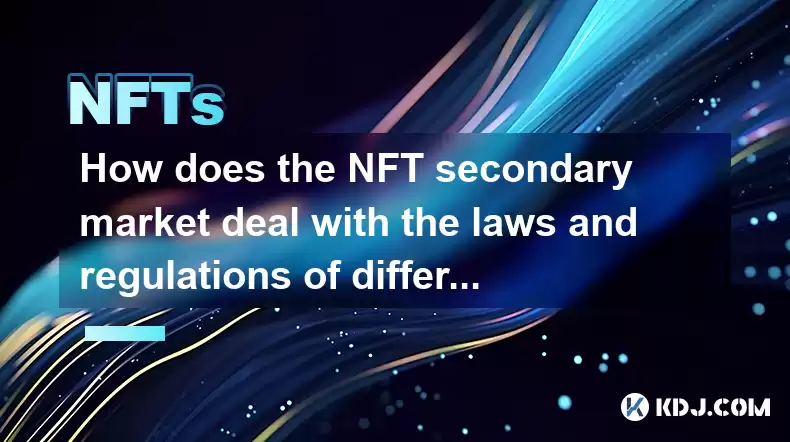
The NFT secondary market operates within a complex landscape of laws and regulations that vary significantly across different countries and regions. Understanding how these markets navigate these legal frameworks is crucial for participants, whether they are buyers, sellers, or platform operators. This article delves into the intricacies of how the NFT secondary market deals with such laws and regulations, highlighting key areas of concern and the strategies employed to comply with them.
Understanding the Legal Frameworks for NFTs
NFTs, or Non-Fungible Tokens, are unique digital assets that are bought and sold on blockchain platforms. The legal frameworks governing these transactions are not uniform globally, which poses significant challenges for the secondary market. Each country has its own set of laws regarding digital assets, intellectual property, and financial regulations, which can impact how NFTs are traded.
In the United States, for instance, the Securities and Exchange Commission (SEC) has been actively examining whether certain NFTs could be classified as securities. This classification would subject them to a different set of regulations, including registration requirements and investor protections. The SEC's stance on NFTs as potential securities has led to increased scrutiny and compliance efforts by NFT marketplaces.
In contrast, countries like Singapore have taken a more progressive approach to digital assets, with the Monetary Authority of Singapore (MAS) providing clearer guidelines on the treatment of digital tokens. This regulatory clarity has made Singapore an attractive hub for NFT trading and related businesses.
Compliance Strategies in the NFT Secondary Market
To navigate the diverse legal landscapes, NFT secondary markets employ various compliance strategies. One common approach is geofencing, where platforms restrict access to users from certain jurisdictions based on their IP addresses. This helps prevent transactions that might violate local laws.
Another strategy involves partnering with local legal experts to ensure compliance with regional regulations. For example, a platform operating in the European Union might work with lawyers specializing in the EU's Markets in Financial Instruments Directive (MiFID) to ensure that their operations align with these regulations.
Additionally, some platforms implement Know Your Customer (KYC) and Anti-Money Laundering (AML) procedures to comply with financial regulations. These measures help verify the identity of users and monitor transactions for suspicious activities, aligning with international standards set by bodies like the Financial Action Task Force (FATF).
Intellectual Property Rights and NFTs
Intellectual property (IP) rights are a significant concern in the NFT secondary market. The ownership of an NFT does not necessarily confer ownership of the underlying IP, which can lead to legal disputes. For instance, if an artist sells an NFT of their artwork, the buyer may own the token but not the rights to reproduce or commercially exploit the artwork.
To address this, some NFT platforms include smart contracts that specify the terms of IP usage. These contracts can outline whether the buyer has any rights to the IP and under what conditions. However, the enforceability of these smart contracts can vary by jurisdiction, adding another layer of complexity.
In regions with strong IP laws, such as the European Union, platforms must be particularly diligent in ensuring that the NFTs they list do not infringe on existing IP rights. This often involves conducting thorough checks on the provenance and rights associated with each NFT before it is listed for sale.
Taxation and NFTs
Taxation is another critical aspect of the NFT secondary market that varies by country. In the United States, the Internal Revenue Service (IRS) treats NFTs as property for tax purposes, meaning that gains from selling NFTs are subject to capital gains tax. This requires buyers and sellers to keep detailed records of their transactions and report them accurately on their tax returns.
In contrast, some countries have yet to establish clear tax guidelines for NFTs. In these jurisdictions, the lack of clarity can lead to uncertainty and potential non-compliance. To mitigate this, some platforms provide guidance to users on how to report their NFT transactions for tax purposes, often recommending that users consult with tax professionals.
Regulatory Challenges and Platform Responses
The NFT secondary market faces ongoing regulatory challenges as governments worldwide grapple with how to classify and regulate these digital assets. In response, many platforms have adopted a proactive approach to regulatory compliance, engaging with regulators and participating in industry associations to help shape the regulatory landscape.
For example, some platforms have joined organizations like the Blockchain Association, which advocates for clear and favorable regulations for digital assets. By participating in these groups, platforms can stay informed about regulatory developments and contribute to the creation of industry standards.
Additionally, platforms often conduct regular audits and compliance reviews to ensure that their operations align with current laws and regulations. These reviews can help identify potential areas of non-compliance and allow platforms to address them before they become issues.
Case Studies: How Different Platforms Handle Regulations
To illustrate how different platforms handle the laws and regulations of various countries and regions, let's look at a few case studies.
OpenSea: As one of the largest NFT marketplaces, OpenSea has implemented robust KYC and AML procedures to comply with international standards. They also use geofencing to restrict access to users from jurisdictions with strict regulations on digital assets. OpenSea has been proactive in engaging with regulators and has participated in discussions with the SEC to clarify the regulatory status of NFTs.
Rarible: Rarible, another prominent NFT platform, has taken a community-driven approach to compliance. They have established a governance model that allows users to vote on platform policies, including those related to compliance. Rarible also partners with legal experts in different regions to ensure that their operations align with local laws.
Nifty Gateway: Nifty Gateway, known for its curated NFT drops, has focused on ensuring that the NFTs listed on their platform do not infringe on IP rights. They conduct thorough checks on the provenance and rights associated with each NFT before listing it for sale. Nifty Gateway also provides clear guidelines to users on how to report their NFT transactions for tax purposes.
Frequently Asked Questions
Q: How do NFT platforms ensure compliance with international sanctions?
A: NFT platforms often use geofencing to restrict access to users from countries under international sanctions. Additionally, they implement KYC and AML procedures to verify the identity of users and monitor transactions for compliance with international standards set by bodies like the FATF.
Q: Can NFT platforms be held liable for IP infringement by users?
A: Yes, NFT platforms can be held liable for IP infringement if they fail to take adequate measures to prevent the listing of infringing NFTs. Platforms often conduct checks on the provenance and rights associated with each NFT and include smart contracts that specify the terms of IP usage to mitigate this risk.
Q: How do NFT platforms handle disputes over ownership and rights?
A: NFT platforms typically have dispute resolution mechanisms in place, which can include mediation or arbitration. They also rely on the terms specified in the smart contracts associated with each NFT to clarify ownership and rights. In cases where disputes escalate, platforms may need to involve legal experts to resolve them according to the laws of the relevant jurisdiction.
Q: What role do smart contracts play in ensuring compliance with regulations?
A: Smart contracts can be programmed to include terms that align with regulatory requirements, such as specifying the rights associated with an NFT or enforcing KYC and AML checks. However, the enforceability of these smart contracts can vary by jurisdiction, and platforms must ensure that they comply with local laws.
Disclaimer:info@kdj.com
The information provided is not trading advice. kdj.com does not assume any responsibility for any investments made based on the information provided in this article. Cryptocurrencies are highly volatile and it is highly recommended that you invest with caution after thorough research!
If you believe that the content used on this website infringes your copyright, please contact us immediately (info@kdj.com) and we will delete it promptly.
- BCUT: Support Holds, Accumulation Hints at Potential Reversal
- 2025-08-04 10:50:12
- Bitcoin's Bullish Expansion: Decoding Bollinger Bands and Whale Bets
- 2025-08-04 10:55:12
- BlockDAG's Grand Finale: Auction Fever and the Dawn of a New Era
- 2025-08-04 10:30:12
- Kaia Files: Will South Korea Embrace a KRW-Pegged Stablecoin?
- 2025-08-04 10:30:12
- Kaspa, HBAR, and Cold Wallet: A New York Minute on Crypto's Latest Moves
- 2025-08-04 09:11:54
- Ethereum Whale Watch: Selling Pressure and Price Volatility
- 2025-08-04 09:11:54
Related knowledge
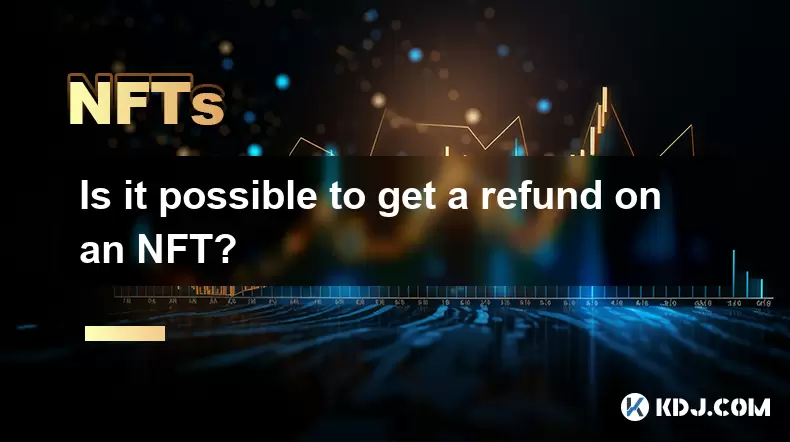
Is it possible to get a refund on an NFT?
Jul 21,2025 at 08:35pm
Understanding NFT Transactions and RefundsWhen you purchase an NFT (Non-Fungible Token), the transaction is typically recorded on a blockchain, making...
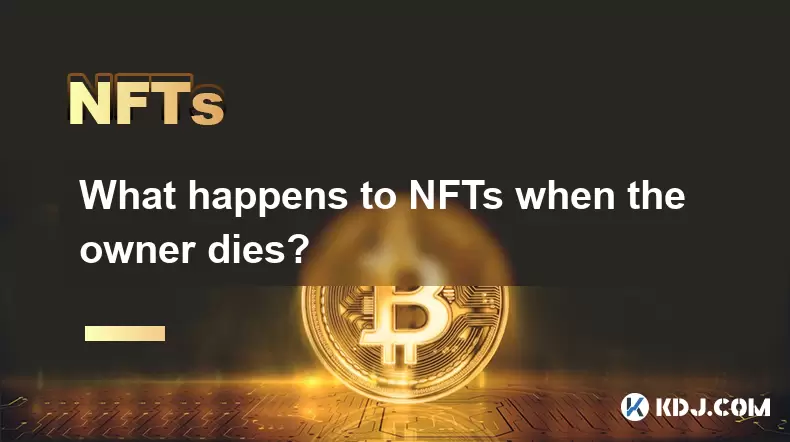
What happens to NFTs when the owner dies?
Jul 22,2025 at 02:43pm
Legal Ownership and Digital AssetsWhen an individual owns NFTs, the question of what happens to these assets upon their death is a pressing one. NFTs ...
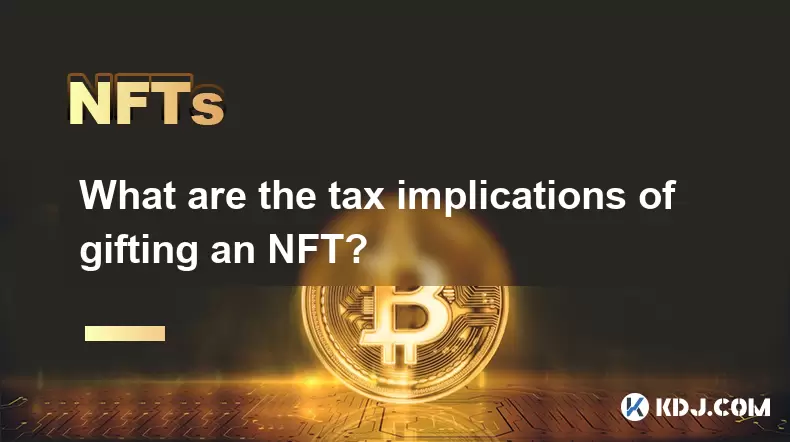
What are the tax implications of gifting an NFT?
Jul 19,2025 at 04:21am
Understanding the Basics of NFT GiftingGifting a Non-Fungible Token (NFT) involves transferring ownership from one individual to another without recei...
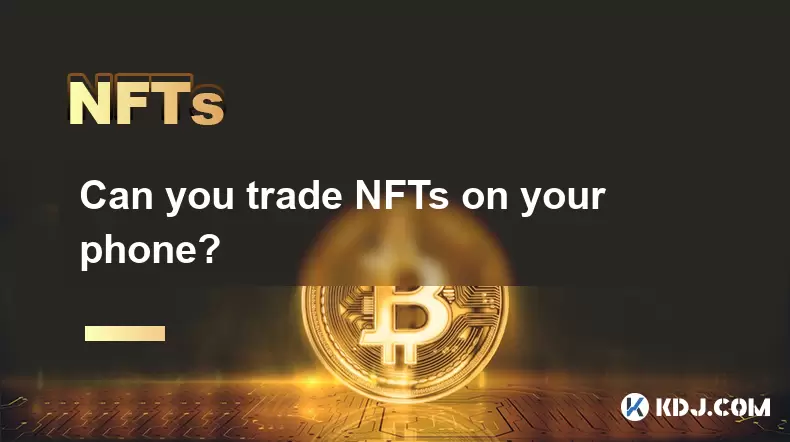
Can you trade NFTs on your phone?
Jul 18,2025 at 04:29am
Trading NFTs on Mobile DevicesYes, you can trade NFTs on your phone, and the process has become increasingly streamlined thanks to a variety of mobile...
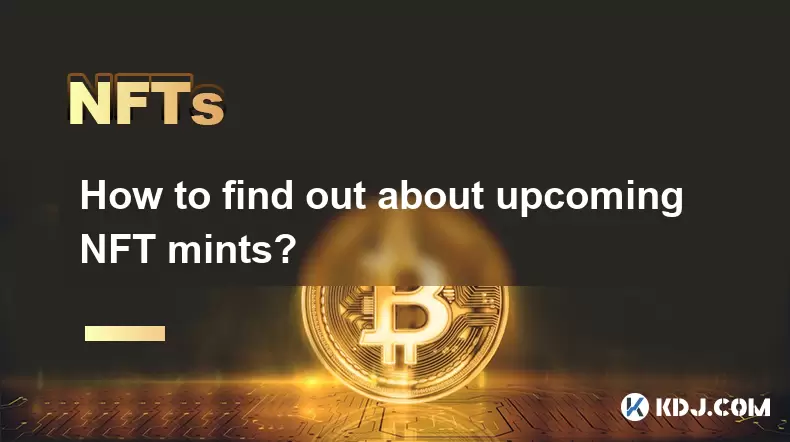
How to find out about upcoming NFT mints?
Jul 18,2025 at 11:50am
Exploring NFT Minting OpportunitiesUnderstanding the landscape of upcoming NFT mints is crucial for collectors, investors, and creators who wish to st...
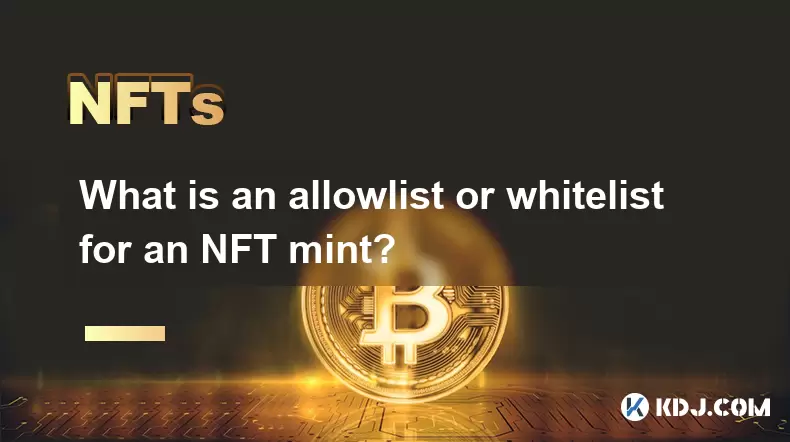
What is an allowlist or whitelist for an NFT mint?
Jul 20,2025 at 07:14pm
Understanding the Concept of an Allowlist for NFT MintingAn allowlist, also commonly referred to as a whitelist, is a mechanism used in the NFT mintin...

Is it possible to get a refund on an NFT?
Jul 21,2025 at 08:35pm
Understanding NFT Transactions and RefundsWhen you purchase an NFT (Non-Fungible Token), the transaction is typically recorded on a blockchain, making...

What happens to NFTs when the owner dies?
Jul 22,2025 at 02:43pm
Legal Ownership and Digital AssetsWhen an individual owns NFTs, the question of what happens to these assets upon their death is a pressing one. NFTs ...

What are the tax implications of gifting an NFT?
Jul 19,2025 at 04:21am
Understanding the Basics of NFT GiftingGifting a Non-Fungible Token (NFT) involves transferring ownership from one individual to another without recei...

Can you trade NFTs on your phone?
Jul 18,2025 at 04:29am
Trading NFTs on Mobile DevicesYes, you can trade NFTs on your phone, and the process has become increasingly streamlined thanks to a variety of mobile...

How to find out about upcoming NFT mints?
Jul 18,2025 at 11:50am
Exploring NFT Minting OpportunitiesUnderstanding the landscape of upcoming NFT mints is crucial for collectors, investors, and creators who wish to st...

What is an allowlist or whitelist for an NFT mint?
Jul 20,2025 at 07:14pm
Understanding the Concept of an Allowlist for NFT MintingAn allowlist, also commonly referred to as a whitelist, is a mechanism used in the NFT mintin...
See all articles

























































































